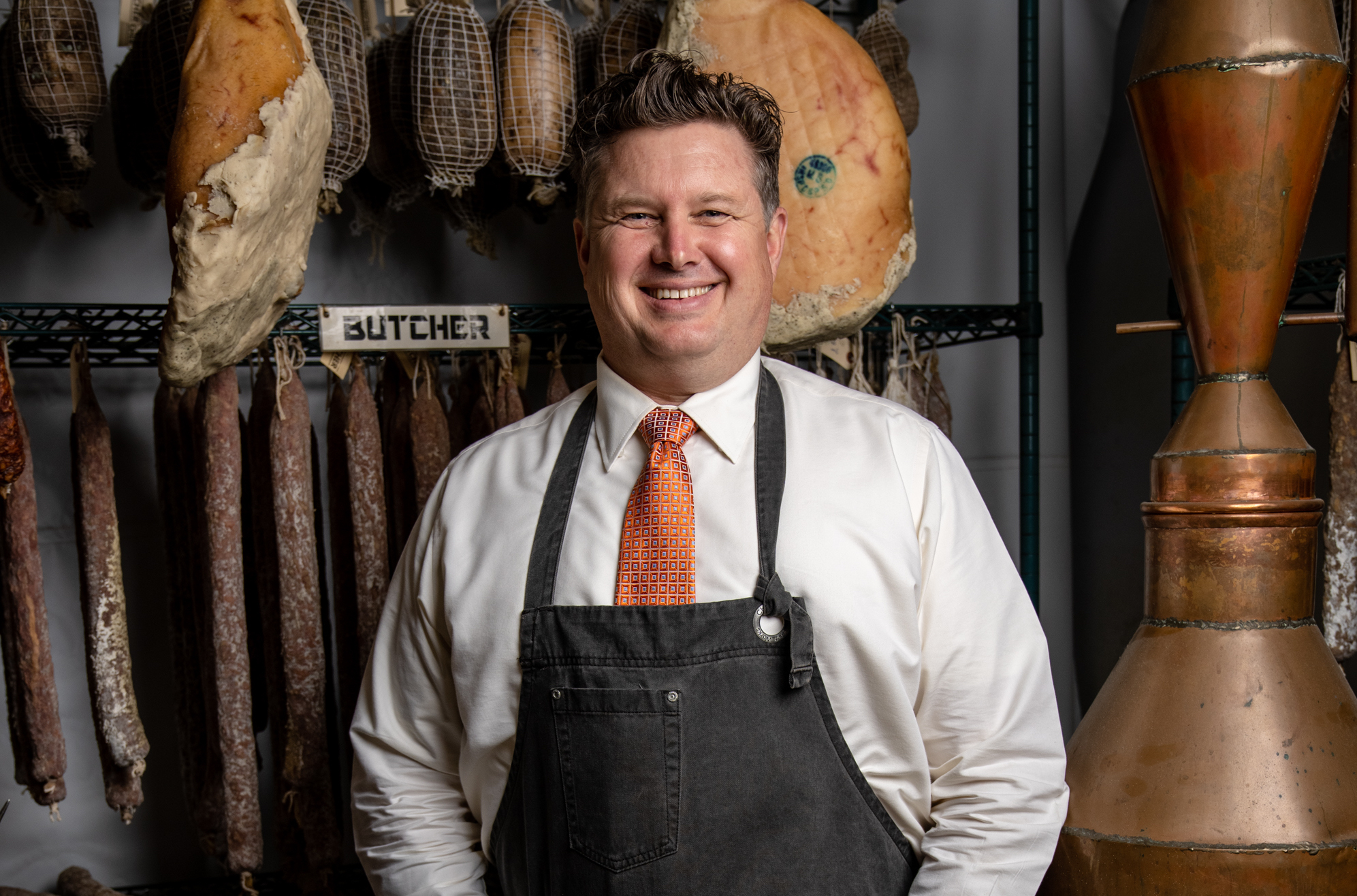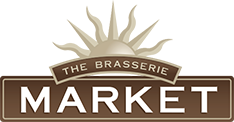Step into the vibrant kitchen and culinary world as we sit down with a true pioneer of the farm-to-table kitchen ahead of his visit to Grand Cayman later this month in January. Stephen Stryjewski is the first of three acclaimed guest chefs joining Executive Chef Dean Max and Head Chef Artemio Lopez at the 2024 Brasserie Harvest Dinner Season. Stephen Stryjewski is set to bring the essence of the Louisana bayou to the Brasserie table. His farm-to-table philosophy not only tantalizes the taste buds but also champions local produce and sustainability.
Tell us about your culinary journey? What led you to the farm-to-table approach in your kitchen?
My journey to becoming a chef started back when I was a teen. I had worked for a woman that barrel raced and trained hunter jumper horses while living in Oklahoma but when we moved to New Jersey the only opportunity around horses was at the horse track four blocks from my house. I was too young to work there so my dad got me a job at the club where he played golf. I was supposed to work the grounds filling water jugs and picking up trash but after being there a few days I discovered the kitchen. I loved the energy and camaraderie and I quickly transferred to washing dishes and being a porter. I always enjoyed cooking as a kid and it was a short path to the prepping and the line. We had a family friend, Jim Otis, who spent his life in kitchens and owning his own restaurants and he gave me some advice about working in kitchens that I adhered to. Never stay anywhere you’re not learning, so I ended up moving around kitchens for several years and ended up at the CIA. In the mid 90s the Culinary Institute was very focused on the idea of local sourcing and seasonality. I’m not sure it was dubbed farm-to-table yet but that’s what it was. My grandfather and then my father were gardeners and I understood the deliciousness of vine ripe tomatoes and fresh salad greens and how different they tasted from the stuff in cellophane. The knowledge mixed with the propaganda really stuck in my head and drove the way I approached my kitchens.
What inspires your menu? Are their specific regions or traditions that have a significant impact on your cooking style?
My tastes run all over the place but Cochon is a bit limiting in its scope. We dubbed it Cajun and Southern when it opened and, in the beginning, I found it a bit limiting, but as time went on I forced myself to keep the food in that vernacular. It made me really explore the depths of two truly American cuisines and figure out how to apply my ideas about food into a narrow framework. It has also prevented me from following too many trends or to figure out how apply other cuisines to a cajun or southern menu. There is no denying that the fried alligator on our menu is a direct rip off of bang bang shrimp or that the fried beef jerky in the mushroom salad is a direct adaptation of Chinese deep fried dried beef. That limiting factor is also why there hasn’t been steamed pork buns on the menu.
If you had to pick one dish or seasoning that best represents your culinary philosophy, what would it be, and why is it special to you?
Gumbo or boudin or fried chicken would all be good dishes to sum up how I look at food, but limiting it to one I would pick bacon. It has to be one of the most versatile ingredients and certainly the one that stands up on its own. It is a combination of four simple ingredients if we include smoke as an ingredient along with the salt, sugar and pork belly, but it takes time and patience and a little skill to turn it into the item that people refer to as the gateway meat. You can add it to just about anything and it gets better. Shaved thin and served raw it rivals most hams, fried in a pan it makes breakfast, wrapped around a date or shrimp or chicken liver or water chestnut it actually takes something great and somehow makes it better. It is magic in food.
Sustainability is at the core of the farm-to-table movement. How do you integrate this in the Cochon kitchen? And why is it important to you?
Sustainability is a cornerstone of our operation. We participate in all of the programs we can, including composting our waste, recycling everything possible and even saving our oyster shells to rebuild oyster reefs. In a world with limited resources and in a state dedicated to fossil fuels it is important to me to participate in leaving something for future generations. Especially since it is so simple to prevent items from entering the trash stream. We try to avoid single-use items or promote recycling where we are limited to single use. We compost all of our vegetable food waste. We participate in a glass recycling program that is working on pulverization methods allowing glass to be used as sand that in turn is used for coastal restoration.
Building relationships with local farmers is at the heart of farm-to-table cooking. Can you share any memorable experiences or collaborations with farmers that have enriched your culinary journey?
Over the past 15 years we have been cultivating relationships with farmers and fishermen in Louisiana. I have met and worked with so many interesting people over the years and I treasure those opportunities. Lots of them were hard fought in the early days. One that was very early on was with the local ARC. Their mission is assisting people with intellectual disabilities with work force training and had a large organic garden as a part of the program. We sat down with them and went through seed catalogs and picked out items that we could use and estimated the production then purchased all of the seeds and promised to purchase all of the food they could grow. It is a format that we have pursued several times over with farmers, please plant this and I promise to buy all you grow. A 100 foot row of fava beans makes a lot of fava beans. We have also gone as far as getting licenses to purchase fish off the docks and even purchased quotas on gulf snapper. At one point we purchased genetics from mangaliseta hogs that we worked with a local farmer to grow. Unfortunately these are a hairy cold weather hog that did nothing 10 months out of the year in southern Mississippi but wallow, but we learned a lot. We then spent several generations working with the farmer to customize a Berkshire, Hampshire, Tamworth cross that have all of the characteristics we were looking for in the meat and attributes that made it worth growing. They are beautiful, delicious and well marbled as well as fast growers, large litter producers and getting into the deep farmer side of things they are resistant or not attractive to the big biting flys that plague southern hog farmers.
For home cooks embracing a farm-to-table approach, what advice would you give them?
Home cooks interested in good food need to go to a farmers market. This is where so many of my relationships have started. Everyone there also knows someone else that is doing stuff that is awesome and they all want you to buy from each other so they will tell you where to get whatever it is you are looking for or they might even be crazy enough to attempt to grow it themselves.
As a pioneer in the farm-to-table movement, where do you see the future of farm-to-table heading? Are there trends or changes coming?
The sustainability movement has hit a few bumps over the last few years. Years of things like political roadblocks and tired messaging have beaten up the idea of the farm-to-table movement but at the same time it has become the standard expected at restaurants. I really think that the younger generation facing the complicated world we’ve created are more concerned about where their food is coming from, the politics surrounding it, how it is promoted and its affect on the world. I think that the restaurants are going to be expected to live up to messaging surrounding greenwashing and I hope this will create pressure to produce better food.
To wrap up, can you share a moment or story with us that encapsulates the spirit of farm-to-table cooking for you?
Back before Cochon opened I was a sous chef at Herbsaint. We had the cover to the grease trap in the center of the kitchen and there was a guy there to vacuum it out. We happened to be peeling shrimp. These were IQF whole shrimp from Louisiana waters that were frozen on the boat then shipped to Atlanta then shipped back to New Orleans. They were at least a month out of the water when we would get them. The guy cleaning our grease trap started asking about the shrimp and why we use frozen shrimp in Louisiana. We explained that at that time there was nobody selling fresh Louisiana shrimp to restaurants. He commented that his daddy was a shrimper and that he would bring us some shrimp the next day. They were the freshest best shrimp I have ever had. 22 years later Dino still brings us fresh shrimp every day.
Experience Stephen’s unique approach first-hand at The Brasserie this month during our Cayman Cookout Harvest Dinner and find out why The Times Picayune has crowned him as a “Chef to Watch”.
Savour the authentic flavours of Cajun country, with Chef Stephen Stryjewski, of Cochon New Orleans and Brasserie Executive Chef Dean Max with wine pairings from Master Sommelier, Simone Ragusa. Indulge in a feast of flavours served family style where every bite is a celebration of Southern warmth and hospitality. Surrounded by the Brasserie’s edible garden with flourishing fruit and nut trees, enjoy an unforgettable farm-to-table dining experience under the stars. Friday 12 January, 6:30-9:30pm. CI$ 275 per person (plus grats). To reserve email us or call +1 345 945 1815.

